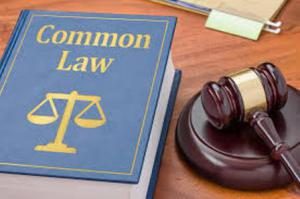 Citizens from former British Southern Cameroons have been wondering what is common law especially those who have not been privy to study law in the University. Cameroon has two types of legal system. The Common and Civil Law. In this article, Donatus Wan-Obi, former UB Student Union Chairman and a legal mind himself, gave the ABC of the common law in the most simple terms for our understanding. It is important that when we talk about Common Law and when we support our lawyers, we should be aware of what we are saying. These short questions and responses will help us gather.
Citizens from former British Southern Cameroons have been wondering what is common law especially those who have not been privy to study law in the University. Cameroon has two types of legal system. The Common and Civil Law. In this article, Donatus Wan-Obi, former UB Student Union Chairman and a legal mind himself, gave the ABC of the common law in the most simple terms for our understanding. It is important that when we talk about Common Law and when we support our lawyers, we should be aware of what we are saying. These short questions and responses will help us gather.
Common law is law that is made by judges rather than the parliament. As judges consider both criminal and civil matters, they make decisions, deliver rulings and develop precedents. Taken together, these things constitute common law. A good deal of civil law, such as torts and negligence, began life as common law. Common law takes some law-making pressure off parliament and allows for laws to respond to real life situations.
What is the difference between Common and Civil Law?
Common Law
– 2 rules, do no harm or threat of harm
– Freedom, responsibility, and Liability
– No need for permission for anything
– Considered responsible (Innocent)
Civil Law
– Thousands of Laws
– Limited Freedom, responsibility, liability
What are the various types of legal systems?
– Civil Law: Main source of law is statutes
– Common Law: Main source of law are statutes, case law and also equity
– Religious Law: Main source of law is religious in text
– Customary Law: Main source of law is established pattern of behavior
– Hybrid: Some mixture of the aforementioned systems
What are some examples of Common Law Protections?
– The privilege against self-incrimination
– Legal professional privilege
– Access to the courts
– Access to legal counsel when an indigent (poor) person is accused of a serious crime
– Immunity from interference with vested property rights including native title rights
– Immunity from deprivation of liberty except by law
– Freedom of speech and movement
– Procedural fairness when affected by exercise of public power
Some examples of countries practicing common and civil law system
Common Law
– UK, Canada, USA, Australia, New Zealand, India, Nigeria, South Africa, Southern Cameroons
Civil Law
– Russia, France, Mali, Niger, La Republique Du Cameroun
Main Differences between Common and Civil Law
| Common Law | Civil Law |
| Case Law | Principle of legality |
| Based on customs/English Law | Based on Roman Law |
| Trial dominated by lawyers with judge as referee | Judge participates actively seeking for evidence and examining witnesses |
| Judge and Jury | One or a panel of judges |
| Judge uses inductive reasoning about the facts | Judge uses deductive reasoning |
| Court may fashion an equitable remedy-one that is “fair” | Inappropriate for court to fashion a remedy not set forth in the code |
| Greater opportunity for false positive or false negative | Greater opportunity for corruption |
What are the systems based on?
Common Law
– Based on precedent, custom and interpretation
– Judge can interpret laws
– Ownership established by use
– Innocent until proven guilty
– Contracts tend to be longer, more detailed
– Contract performance except for Acts of God
– More adversarial/more Lawsuits
Civil Law
– Based on written codes and detailed laws
– Judge can apply laws
– Ownership established by registration
– Guilty until proven innocent
– Contracts tend to be shorter
– Contract performance has ” Acts of God’ which include unforeseable acts
– Less adversarial/less lawsuits

We need more intighss like this in this thread.
The common law is a heritage from the British which makes Southern Cameroons a unique and different entity fro the Republic of Cameroon.
Thanks for the clarification on Common Law. I will propose you read this book on Amazon: THE HISTORY OF AMBAZONIA FROM THE VOYAGE OF ITS DISCOVERY BY HANNO TO MODERN TIMES AND CONTEMPORARY ISSUES. It provides a very interesting and comprehensive perspective on the history of our beloved Ambazonia. If you find it good, spread the word, else you could always send me a critique by email or otherwise.